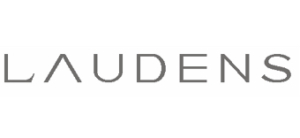Google is being sued for its voice over IP part of the Google Talk program
Rates Technology, Inc., a New York company is suing Google for patent infringement. The lawsuit relates to the Google Talk instant messaging and chat program. In particular, Rates Technology alleges that the Voice-over-IP (VoIP) part of the Google Talk program infringes two US patents held by Rates Technology relating to minimising long-distance call costs through use of the Internet.
As reported in CNET news, Rates Technology is alleged to be a patent holding company and does not have a competing product, but instead makes money out of filing patent infringement lawsuits.
Google has stated that they believe the lawsuit is without merit and that they will defend it vigorously.
Rates technology President, Jerry Weinberger, is reported to have said that Rates Technology has also sued Vonage and Cablevision for patent infringement. One-time technology usage fees have been paid by Yahoo, Microsoft, Cisco, Lucent and others, and Rates Technology is in discussions with eBay over their Skype technology, presumably relating to the SkypeOut part of their service.
Mr Weinberger is reported to have said:
“When a VoIP call can be transferred to the regular PSTN (telephone network), the switching of that call infringes our patent.”

